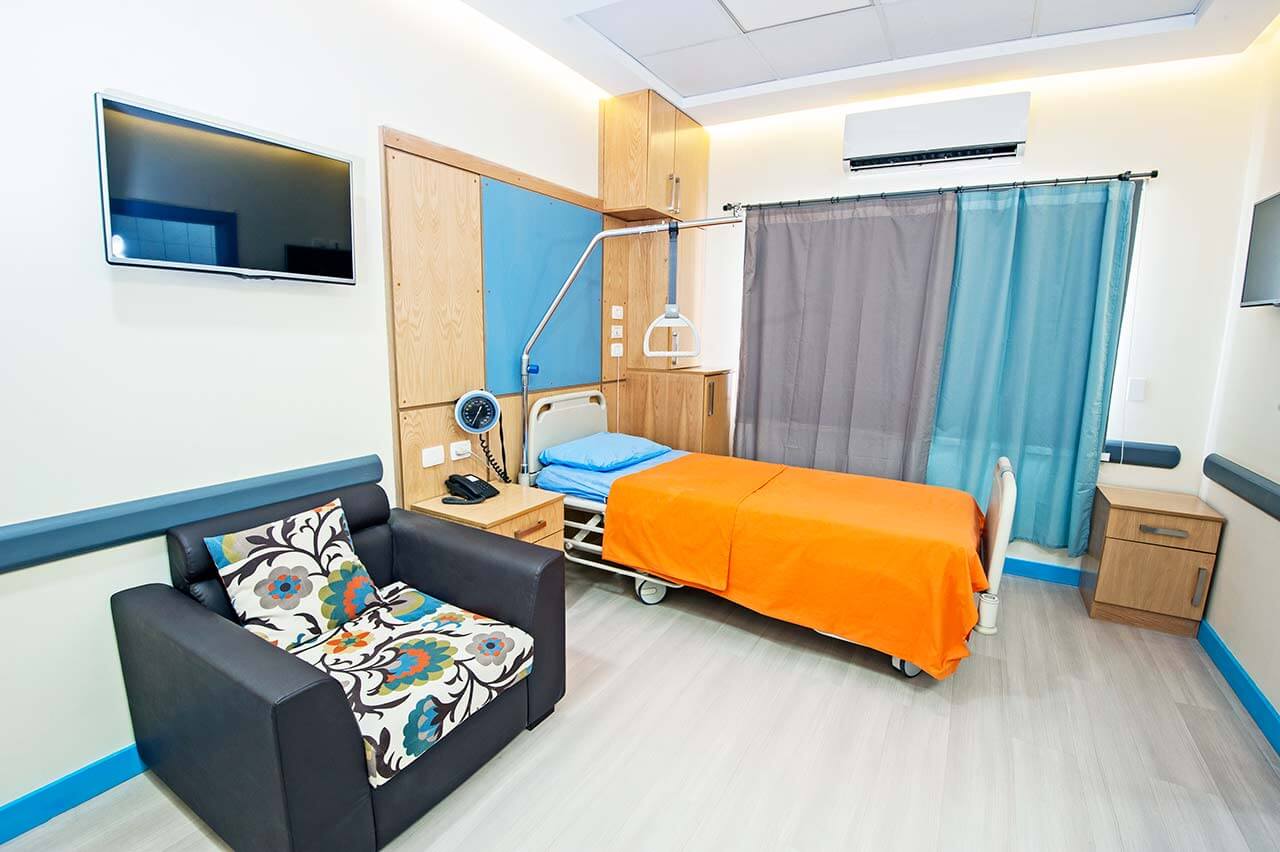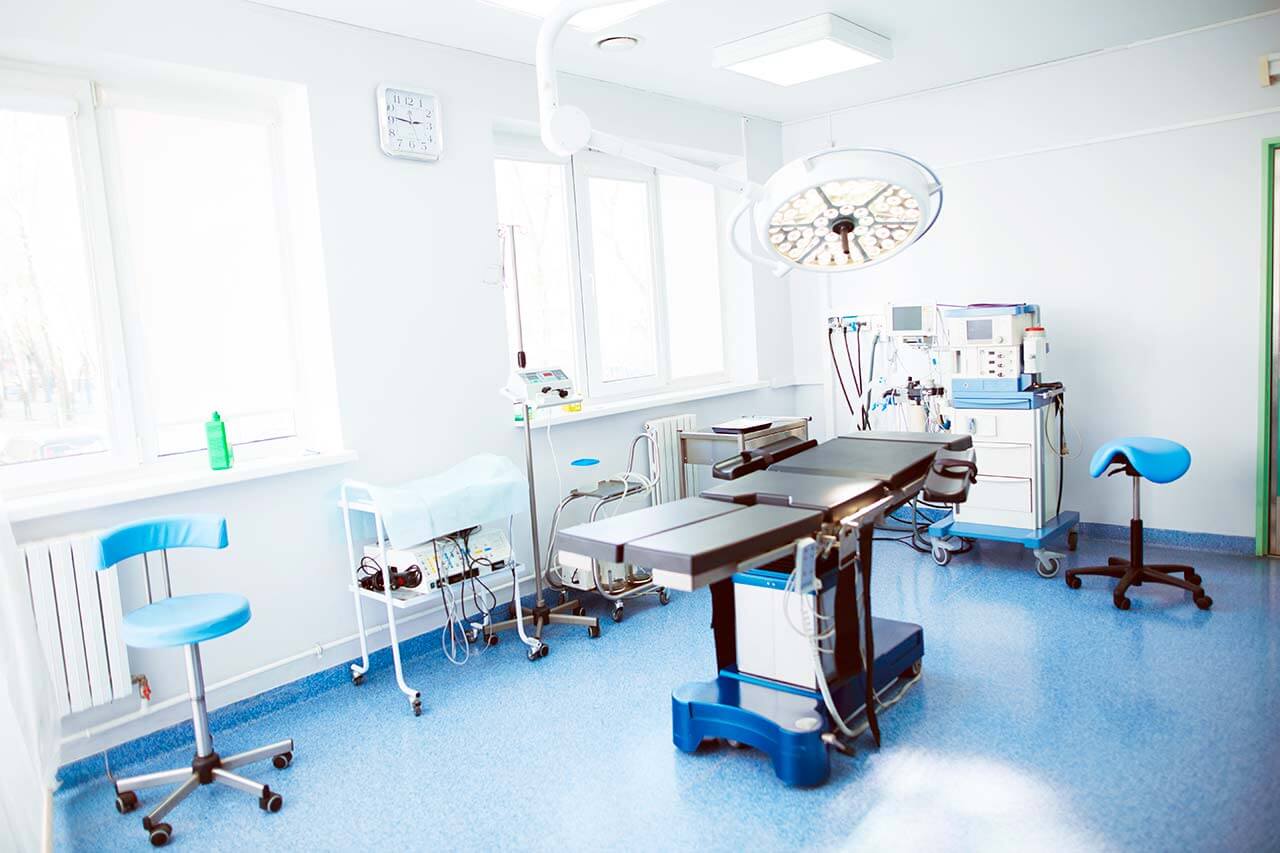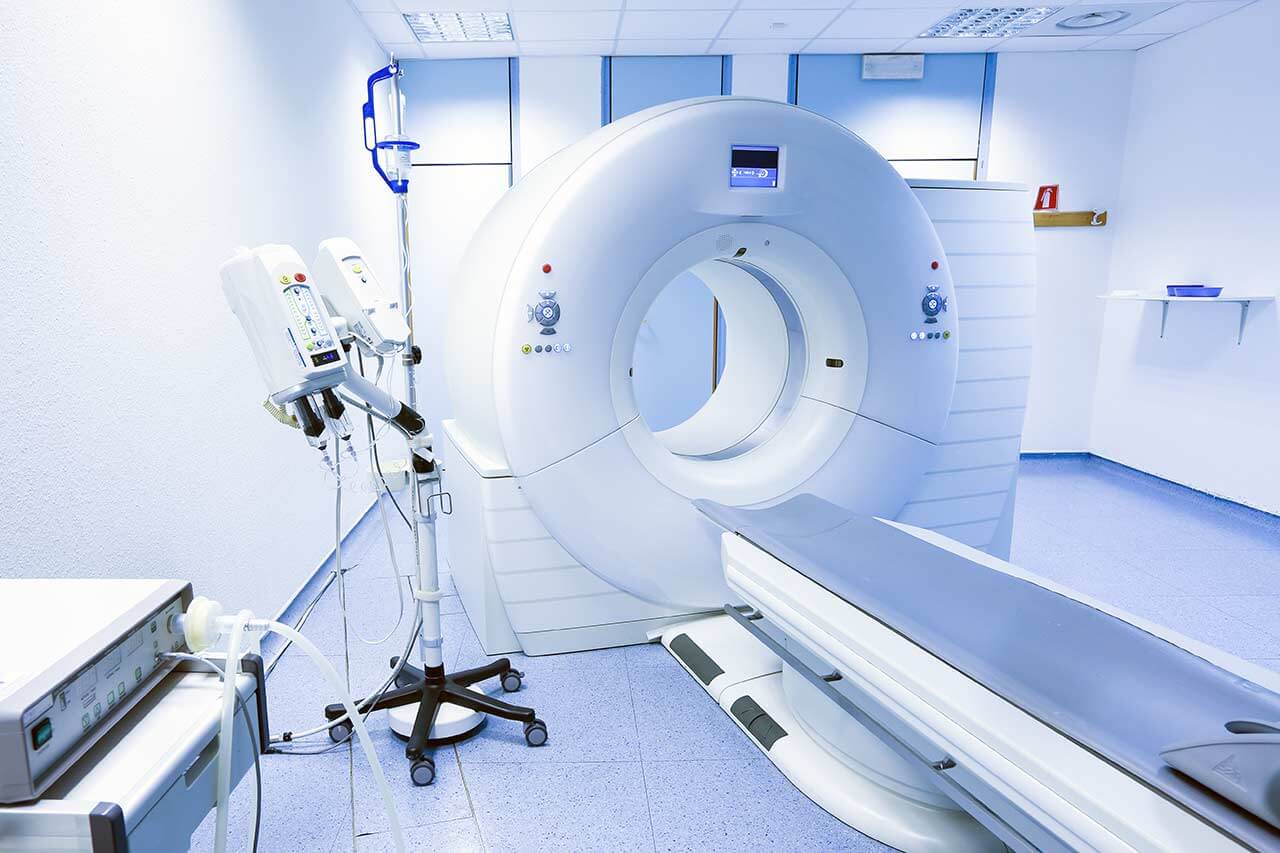
The program includes:
- Initial presentation in the clinic
- clinical history taking
- general clinical examination
- laboratory tests:
- complete blood count
- clinical urine test
- kidney function test (creatinine, urea)
- blood coagulation analysis (aPTT, PT, INR)
- inflammaion indicators (CRP, ESR)
- tumor markers
- pelvic ultrasound
- CT scan (on indication 650 €)
- MRI scan (on indication 1200 €)
- cystoscopy
- biopsy with histological examination (on indication 2000 €)
- nursing services
- consultation of related specialists
- consultation of the chief physician and all leading experts
- development of individual treatment plan
- written statement
Required documents
- Medical records
- MRI/CT scan/US of the pelvis (not older than 3 months)
- Biopsy results (if available)
Service
You may also book:
 BookingHealth Price from:
BookingHealth Price from:
About the department
The Department of Adult and Pediatric Urology, Andrology at the Municipal Hospital Karlsruhe provides the full range of diagnostic and therapeutic services to the patients with diseases of the kidneys and bladder, as well as pathologies of the prostate gland, testicles and penis in men. The medical facility also admits men with infertility, erectile dysfunction and other andrological problems. The department's urologists have successful experience in treating congenital malformations and diseases of the kidneys, ureters, bladder and organs of reproduction in boys. The department ranks among the largest and most advanced Urology Centers in Germany. The department's specialists admit more than 4,000 inpatients and about 10,000 outpatients annually. There are 77 beds available for inpatient treatment. The department's medical team focuses on a person with his individual needs. The department is headed by Prof. Dr. med. Dogu Teber.
The specialists in adult urology are responsible for treating benign and malignant diseases of the urinary system in women and men, as well as pathologies of the reproductive system in men. The most common conditions in the work of the department's doctors include kidney, bladder, prostate, testicular and penile cancers, as well as kidney stone disease, urinary incontinence and benign prostatic hyperplasia. To fight against oncological diseases, the department's doctors use surgical treatments, chemotherapy and/or radiation therapy. As for benign pathologies, the specialists use drug therapy, laser techniques, and surgical interventions – in complex and advanced cases.
It is important for the department's doctors to provide their patients with effective and most sparing treatment, so the medical facility has advanced equipment, including the da Vinci surgical system. This technique is most often used for resecting the prostate gland and kidneys, renal pelvis plastic repair and sacrocolpopexy. When operating with the da Vinci surgical system, the surgeon sits at the control console and controls each robot's manipulation, focusing on 3D images of the surgical field. The da Vinci surgical system allows the specialists to perform operations with virtually no blood loss, and high-resolution images guarantee the maximum accuracy of each manipulation. In addition, robot-assisted surgery for prostate cancer minimizes the risk of sexual dysfunction and the development of urinary disorders, which is an undeniable advantage for patients.
Another innovation in the department's clinical practice is high-intensity focused ultrasound (HIFU) therapy. The department uses a Focal OneÒ device by EDAP TMS. The technique is used to treat aggressive forms of prostate cancer. The essence of the method lies in the fact that high-frequency ultrasonic waves heat the tissues of the prostate gland up 85°C and above, which leads to the death of cancer cells. After the therapy, the doctor monitors the treatment results using a PSA blood test, palpation, ultrasound, MRI and biopsy with histological examination.
Pediatric urology occupies an essential place in the department's clinical practice. This deals with the treatment of phimosis, cryptorchidism, hydrocele, varicocele, penile curvature, vesicoureteral reflux, renal pelvis outflow stenosis, enuresis and other pathologies. In most cases, the treatment takes place on an outpatient basis; if hospitalization is required, it is possible to accommodate the child in the room with one of his parents. A diagnosis is made with ultrasound, voiding cystourethrography, renal scintigraphy, cystoscopy, and laboratory tests. Pediatric urologists conduct conservative treatment whenever possible, but if surgery is required, it is performed using the most sparing and safe surgical techniques.
The department's service range is complemented by medical care for men with andrological diseases. Of crucial importance is the treatment of infertility, erectile dysfunction and hypogonadism. Male infertility can develop due to infectious lesions of the genitourinary system, disorders of sperm production, or disorders of the excretion of sperm from the testicles (ejaculatory duct obstruction). When such conditions are detected in patients, they usually receive conservative treatment. Erectile dysfunction is often caused by high blood pressure, penile vascular stenosis, or diabetes mellitus. Pathology can also be the result of radical surgery for prostate cancer. To treat erectile dysfunction, the department's doctors use 5-phosphodiesterase inhibitors in the form of injections or pills.
The department's main clinical activities include:
- Urology
- Diagnostics and treatment of urologic cancers
- Prostate cancer
- Watchful waiting
- Radical prostatectomy
- Radiation therapy
- Chemotherapy
- Pain management for metastatic prostate cancer
- Testicular cancer
- Testicular resection
- Sperm cryopreservation
- Radiation therapy and chemotherapy for metastases
- Penile cancer
- Surgical treatment, including radical resection with urinary diversion
- Resection of metastases
- Chemotherapy and radiation therapy (for advanced stages)
- Palliative care
- Bladder cancer
- Transurethral resection of bladder tumors
- Radical cystectomy (bladder removal)
- Diversion of urine through a catheter
- Chemotherapy
- Kidney cancer
- Surgical resection (most often minimally invasive interventions using a robot-assisted surgical system)
- Radiation therapy
- Chemotherapy
- Treatment of metastases (surgery and therapy with tyrosine kinase inhibitors)
- Prostate cancer
- Diagnostics and treatment of benign urologic diseases
- Kidney stone disease
- Extracorporeal shock wave lithotripsy
- Percutaneous nephrolitholapaxy, including mini technique
- Ureterorenoscopy
- Benign prostatic hyperplasia
- Drug therapy
- Surgical treatment: monopolar and bipolar transurethral resection of the prostate gland, and enucleation of prostate adenoma
- Urinary incontinence
- Conservative therapy (for example, exercise to strengthen the pelvic floor muscles, biofeedback, etc.)
- Surgical treatment (for example, TVT, TOT sling procedures, artificial sphincter implantation, etc.)
- Kidney stone disease
- Diagnostics and treatment of urologic diseases in children: malformations and diseases of the kidneys, ureters, bladder and reproductive organs
- Phimosis
- Cryptorchidism
- Hydrocele
- Varicocele
- Penile curvature
- Vesicoureteral reflux
- Renal pelvis stenosis
- Kidney stones
- Enuresis
- Diagnostics and treatment of urologic cancers
- Andrology
- Diagnostics and treatment of andrological problems
- Male infertility
- Erectile dysfunction
- Hypogonadism
- Diagnostics and treatment of andrological problems
- Other medical services
The department's surgical options include:
- Reconstructive surgery on the bladder, kidneys and male reproductive system
- Laparoscopic interventions
- Nephrectomy (kidney resection)
- Adrenalectomy (adrenal gland resection)
- Kidney cyst removal
- Renal pelvis plastic reconstruction in the case of its stenosis
- Varicocelectomy
- Search for testicles in the case of cryptorchidism
- Outpatient surgery
- Punch biopsy, including MRI-guided fusion biopsy
- Removal or replacement of a ureteral stent
- Hydrocele repair
- Circumcision
- Vasectomy
- Varicocele surgery
- Treatment of kidney stone disease (lithotripsy)
- da Vinci robot-assisted surgery
- High-intensity focused ultrasound (HIFU)
- Laser therapy (holmium laser)
- Kidney stones
- Genital and urethral warts
- Ureteral and renal pelvis tumors
- Other surgical services
Curriculum vitae
On April 1, 2018, Prof. Dr. med. Dogu Teber headed the Department of Adult and Pediatric Urology, Andrology at the Municipal Hospital Karlsruhe. Prior to that, he worked as a Managing Senior Physician and a Deputy Head of the Department of Urology at the University Hospital Heidelberg. From 1989 to 1996, the doctor studied Human Medicine in Bochum. In 1998, he was admitted to medical practice. In 2002, he defended his doctoral thesis. In 2004, he had his board certification in Urology. The doctor then had his habilitation in Urology and held the position of an Extraordinary Professor at the University of Heidelberg.
Photo of the doctor: (c) Städtische Klinikum Karlsruhe
About hospital
The Municipal Hospital Karlsruhe is a modern maximum care medical facility, which combines a long tradition and the advanced achievements of modern medicine. The hospital operates on the basis of the University of Freiburg, so scientific innovations in the field of diagnostics and treatment are continuously introduced into practice here. The hospital presents almost all areas of modern medicine, including many medical services for young patients.
A highly qualified and experienced team of more than 4,500 employees provides impeccable medical care. The medical facility has 1,571 beds for the hospitalization of its patients. The hospital admits more than 63,000 inpatients and about 186,000 outpatients annually. A large number of patients wishing to receive medical care in the hospital speak for themselves and are a confirmation of the exceptional service, as well as the effectiveness of the treatment provided.
The quality management system of the hospital's medical care is certified in accordance with the DIN EN ISO 9001 standards. Since 2016, the hospital has implemented a regular quality control in compliance with the strict standards of the Initiative Quality Medicine (IQM). In addition, almost all departments of the hospital have numerous certificates in their areas of specialization, including certificates from the German Cancer Society (DKG), the German Society for General and Visceral Surgery (DGAV), the German Cardiac Society (DGK), the German Diabetes Society (DDG), the German Society of Nephrology (DGN), the German Trauma Society (DGU), etc.
The main value of the hospital's staff is the health and satisfaction of their patients, so a respect and a humane attitude towards each patient remain priorities. The doctors and nursing staff support each patient in every possible way on their path to recovery. The specialists also strive to perform the most sparing, but at the same time the most effective and safe treatment.
Photo: (с) depositphotos
Accommodation in hospital
Patients rooms
The patients of the Municipal Hospital Karlsruhe live in cozy patient rooms with everything necessary for a comfortable stay. Standard patient room furnishing includes an automatically adjustable bed, a bedside table, a TV, and a telephone. The patient rooms have Wi-Fi. Each patient room also has an ensuite bathroom with a shower and a toilet.
The patient rooms in the pediatric departments are specially designed for children, so that young patients feel at home. Children can live in their patient room with one of their parents. There are also special playrooms designed for children.
Meals and Menus
The patients of the hospital are offered tasty and varied three meals a day: breakfast, lunch and dinner. The menu also features dietary meals. The kitchen staff will gladly accept all the individual wishes of patients.
The hospital also has a cozy cafe where one can have a tasty snack, drink tea, coffee and soft drinks.
Further details
Standard rooms include:
Religion
The hospital has two chapels that regularly host Protestant, Catholic, and Ecumenical worship services. A patient can watch the broadcast of the worship on TV channels in his own room, if desired.
Accompanying person
Your accompanying person may stay with you in your patient room or at the hotel of your choice during the inpatient program.
Hotel
You may stay at the hotel of your choice during the outpatient program. Our managers will support you for selecting the best option.





